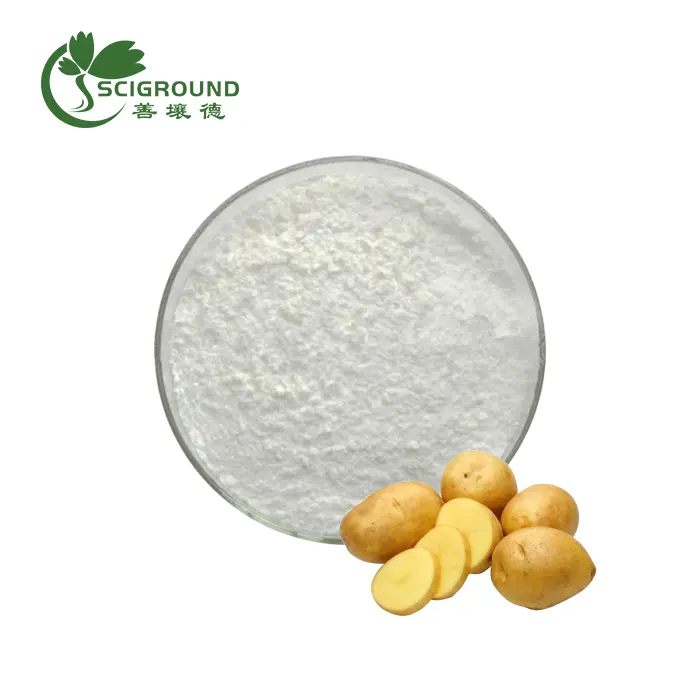Alverine Citrate is a powerful antispasmodic medication that has gained considerable traction in the medical community for its efficacy in treating various gastrointestinal disorders. This drug, often marketed under brand names like Spasmonal and Audmonal, belongs to a class of medications designed to alleviate muscle spasms, particularly in the digestive tract. The primary applications of Alverine Citrate revolve around managing conditions such as irritable bowel syndrome (IBS) and diverticular disease, both of which are characterized by painful and distressing muscle contractions in the gastrointestinal system.
The popularity of Alverine Citrate stems from its unique ability to target smooth muscle spasms in the gut without significantly impacting muscles in other areas of the body, such as the uterus, blood vessels, or bronchi. This specificity makes it an attractive option for patients seeking relief from gastrointestinal discomfort without the risk of widespread muscular effects.
At its core, Alverine Citrate functions by modulating the influx of calcium into smooth muscle cells. This mechanism effectively inhibits muscle contractions, thereby reducing spasms and associated pain. The drug's action primarily involves blocking voltage-gated calcium channels, which play a crucial role in initiating and propagating muscle contractions. By interfering with this process, Alverine Citrate diminishes the excitability of smooth muscle cells, providing relief from symptoms like abdominal pain, bloating, and irregular bowel movements often associated with IBS.
Research into Alverine Citrate has been extensive and ongoing, with numerous studies conducted by reputable institutions to elucidate its efficacy and safety profile. While the drug has been in use for several decades, scientists continue to explore its potential applications and refine our understanding of its mechanisms. This sustained interest from the scientific community underscores the importance of Alverine Citrate in the treatment of gastrointestinal disorders.
One of the most appealing aspects of Alverine Citrate is its selective action. Unlike some other antispasmodics that may affect multiple muscle types throughout the body, Alverine Citrate predominantly targets the smooth muscles of the gastrointestinal tract. This selectivity is a significant advantage, as it minimizes the potential for unwanted side effects that might arise from the relaxation of muscles in other body systems.
For individuals struggling with the often debilitating symptoms of IBS or diverticular disease, Alverine Citrate offers a beacon of hope. Its ability to alleviate painful spasms and regulate bowel function can significantly improve quality of life, allowing patients to manage their symptoms more effectively and regain a sense of normalcy in their daily activities.
How to Use Alverine Citrate
Administering Alverine Citrate correctly is crucial for achieving optimal therapeutic benefits while minimizing the risk of adverse effects. This medication is available in various formulations, including capsules and tablets, providing flexibility in dosing and administration.
For adult patients, the typical dosage of Alverine Citrate ranges from 60 to 120 mg, administered up to three times daily. The specific dosage may vary depending on the severity of symptoms and individual patient factors. It's imperative to follow the prescription provided by a healthcare professional, as they will consider your unique medical history and condition when determining the appropriate dosage.
Alverine Citrate can be taken with or without food, though it's generally recommended to consume it with water. The timing of doses should be spread evenly throughout the day to maintain consistent levels of the medication in the system. For instance, if prescribed three times daily, you might take it in the morning, afternoon, and evening.
The onset of action for Alverine Citrate can vary among individuals. Some patients may experience relief within 1 to 2 hours after ingestion, while others might require several days of consistent use before noticing significant improvements in their symptoms. It's important to maintain patience and adhere to the prescribed regimen, even if immediate results are not apparent.
If you miss a dose of Alverine Citrate, it's advisable to take it as soon as you remember, unless it's nearly time for your next scheduled dose. In such cases, skip the missed dose and resume your regular dosing schedule. Doubling up on doses to compensate for a missed one is not recommended, as it may increase the risk of side effects without providing additional therapeutic benefits.
For optimal results, it's crucial to use Alverine Citrate as part of a comprehensive treatment plan. This may include dietary modifications, stress management techniques, and other lifestyle changes recommended by your healthcare provider. Combining medication with these holistic approaches often yields the best outcomes in managing gastrointestinal disorders.
What is Alverine Citrate Side Effects
While Alverine Citrate is generally well-tolerated by most patients, it's important to be aware of potential side effects that may occur during treatment. Understanding these possible adverse reactions can help patients make informed decisions and seek timely medical attention if necessary.
Common side effects associated with Alverine Citrate use include:
- Nausea
- Dizziness
- Headache
- Mild gastrointestinal discomfort
In rare cases, more serious side effects may occur. These can include:
- Allergic reactions (rash, itching, swelling, severe dizziness, difficulty breathing)
- Severe gastrointestinal disturbances
- Changes in heart rate or rhythm
- Unusual mood changes or mental state alterations
It's worth noting that Alverine Citrate is contraindicated in certain populations. Individuals with a history of hypersensitivity to the drug or any of its components should avoid its use. Additionally, patients with paralytic ileus, a condition characterized by intestinal immobility, should not take Alverine Citrate as it may exacerbate the condition.
Pregnant women and those who are breastfeeding should exercise caution when considering Alverine Citrate. Due to limited data on its safety in these populations, the medication should only be used if the potential benefits outweigh the risks, as determined by a healthcare professional.
To minimize the risk of side effects, it's essential to adhere to the prescribed dosage and inform your healthcare provider of any pre-existing medical conditions or medications you're currently taking. This information allows for a comprehensive assessment of potential interactions and individualized treatment planning.
What Other Drugs Will Affect Alverine Citrate
Understanding potential drug interactions is crucial when taking Alverine Citrate to ensure its efficacy and minimize the risk of adverse effects. While Alverine Citrate generally has a favorable interaction profile, there are several medications and substances that may influence its effects or be influenced by it.
One of the primary concerns regarding drug interactions with Alverine Citrate involves medications that depress the central nervous system. These include:
- Benzodiazepines (e.g., diazepam, lorazepam)
- Opioid pain medications
- Certain antidepressants, particularly tricyclic antidepressants
- Antihistamines with sedating properties
- Barbiturates
Medications that affect the metabolism of Alverine Citrate can also impact its effectiveness. Enzyme inducers, such as:
- Phenytoin
- Carbamazepine
- Rifampicin
It's also important to consider the potential impact of Alverine Citrate on the absorption of other medications. As an antispasmodic, it may affect gastrointestinal motility, which could theoretically alter the absorption rates of other orally administered drugs. While this effect is generally not clinically significant, it's worth monitoring in cases where precise drug absorption is critical.
Alcohol consumption while taking Alverine Citrate is discouraged, as it can exacerbate side effects such as dizziness and drowsiness. The combination may also increase the risk of gastrointestinal side effects.
Herbal supplements and over-the-counter medications should also be considered when assessing potential interactions with Alverine Citrate. Some herbal products, particularly those with sedative properties (e.g., valerian root, kava) or those affecting gastrointestinal function (e.g., peppermint), may interact with Alverine Citrate.
To ensure safe and effective use of Alverine Citrate, patients should:
- Provide a comprehensive list of all medications, including over-the-counter drugs, supplements, and herbal products, to their healthcare provider
- Inform their pharmacist about Alverine Citrate use when obtaining new medications
- Avoid starting or stopping any medication without consulting their healthcare provider
- Report any unusual symptoms or changes in their condition promptly
In conclusion, Alverine Citrate represents a valuable tool in the management of gastrointestinal disorders characterized by smooth muscle spasms. Its targeted action on the digestive tract, coupled with a generally favorable side effect profile, makes it an attractive option for many patients struggling with IBS or diverticular disease. However, as with any medication, its use should be carefully monitored and managed under the guidance of a healthcare professional. By understanding the proper usage, potential side effects, and possible drug interactions, patients can make informed decisions about their treatment and work towards achieving optimal symptom relief and improved quality of life.
Call to Action: If you're interested in learning more about Alverine Citrate or exploring its potential benefits for your gastrointestinal health, we encourage you to reach out to us. Our team at Shaanxi SCIGROUND is dedicated to providing high-quality plant extract products and can offer further information on Alverine Citrate. Contact us at info@scigroundbio.com for more details or to discuss your specific needs.







